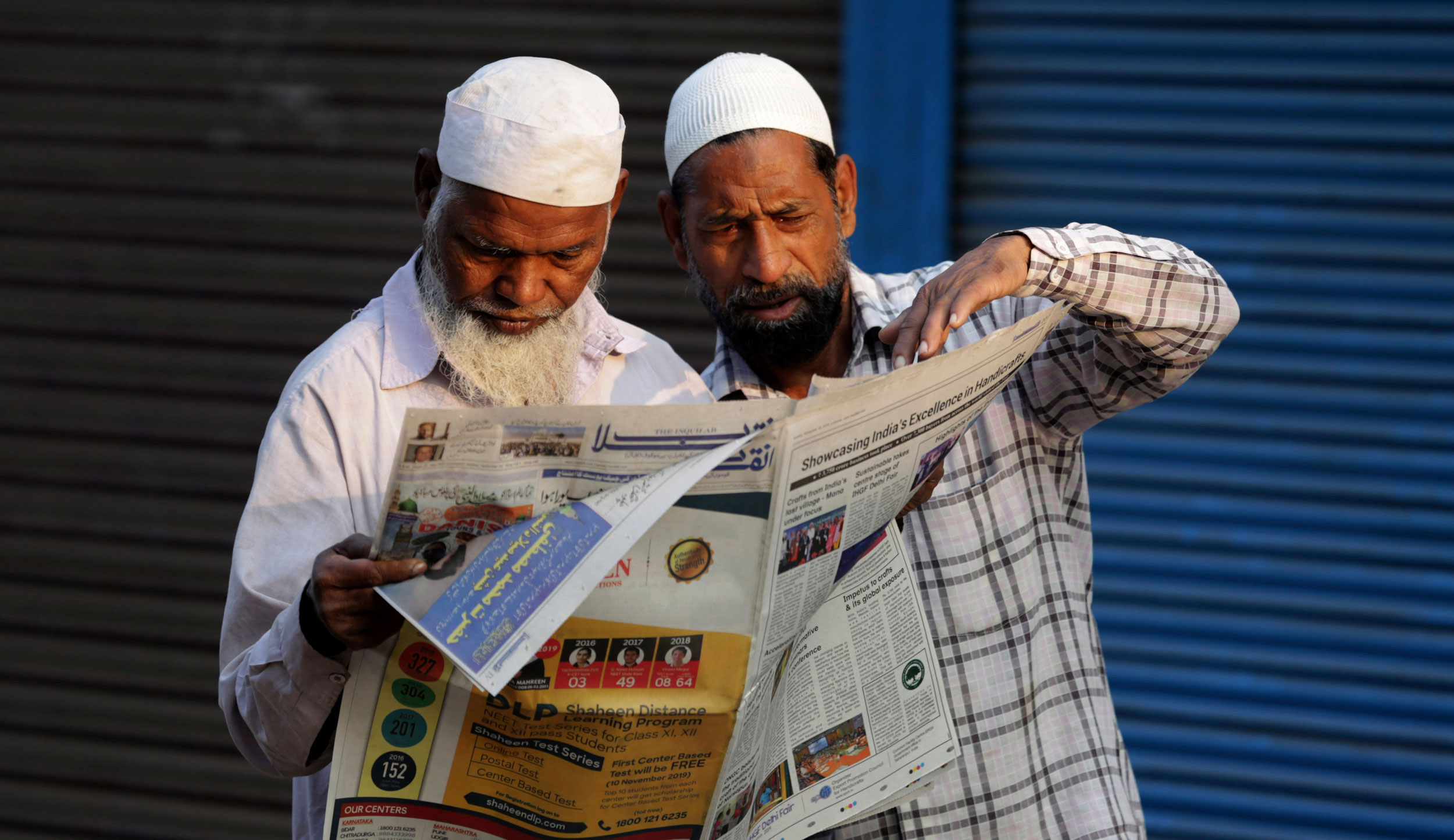Several Muslims in Ayodhya stayed indoors on Saturday and refused to step out even on Sunday, opting not to celebrate Barawafat or Milad-Un-Nabi, Prophet Muhammad’s birthday.
The occasion usually witnesses processions along decorated streets, with people wearing new clothes, to be followed by feasts.
But The Telegraph found the town’s Muslim neighbourhoods desolate and muted on Sunday. Residents declined to react to Saturday’s Supreme Court verdict that accepted the Hindus’ right to build a Ram temple at the site where the Babri Masjid was demolished in December 1992.
Some of them spoke of unsuccessful efforts by the local administration to present a Kashmir-style “all is well” narrative.
“A group of policemen came to my neighbourhood and insisted that residents take out the usual Barawafat procession,” a shoe-store owner in the Beniganj area of Ayodhya said, asking not to be named.
“They said that although there was a ban on assemblies of more than four people (Section 144 has been in place since Saturday), they wouldn’t stop the procession because it was a festival. We told them it was our festival and we didn’t want to celebrate it.”
Many neighbourhoods had been illuminated on Friday to celebrate the festival, and a Barawafat-eve qawwali (music) programme had been planned on Saturday night in Chowk, the town’s old quarters. But after the Supreme Court judgment, most of the lights were removed on Saturday evening.
“We had already paid Rs 2 lakh to a qawwali party. More than 20 cooks had been hired to prepare biryani and kabab for over 20,000 people,” a Muslim resident of the Subhas Nagar locality said on Sunday.
“But the organising committees, which had collected money for the celebrations, decided to cancel it all. The food was not used.”
The man, who wished to stay unnamed, said: “We are praying in mosques on the occasion of Barawafat but don’t want to celebrate it in the usual, big way.”
Anil Kumar Singh, associate professor of Hindi at Saket Degree College, Ayodhya, said the Muslims were feeling “helpless”.
“There is fear, sorrow and anger among the Muslims of Ayodhya. They are not speaking even a word on the issue (Ayodhya verdict) because they feel helpless. There may be peace on the streets but there’s simmering unrest in their hearts,” he said.
A local journalist, who too requested anonymity, said: “Only a fool will speak his heart at this moment because the security forces are everywhere and are watching people closely. I have learnt that only children in the Muslim families ate dinner on Saturday night.”
This newspaper saw several self-motivated Hindu youths roaming their neighbourhoods on Saturday night and informing the police over the phone about any person or activity they deemed “suspicious”.
Police sources said the force had detained over 50 people, all from the minority community, in the night and released them on Sunday.
“The day (Saturday) had passed peacefully but nobody could have predicted what might happen at night. So we decided to assume the responsibility of maintaining peace,” a Hindu youth in Chowk said.
“The police’s response has been quick. I alerted the police about the activities of two people and both were detained for the night. I had heard them shouting from their terraces that they were not happy with the court order.”
The young man said he was not associated with any organisation but was doing his job as a responsible Hindu.
Zufar Ahmad Farooqui, chairperson of the Uttar Pradesh Sunni Central Wakf Board, the principal Muslim party in the Ayodhya case, on Sunday reiterated that the organisation wouldn’t challenge the verdict. Farooqui is considered close to the ruling establishment.
“We welcome it. A detailed reaction will be issued after studying the order. We shouldn’t believe those who are saying that a review petition might be filed,” he told reporters, repeating a stand he had taken on Saturday.
Zafaryab Jilani, member of the All India Muslim Personal Law Board and a counsel for the Wakf Board in the case, had said a review petition might be filed.










